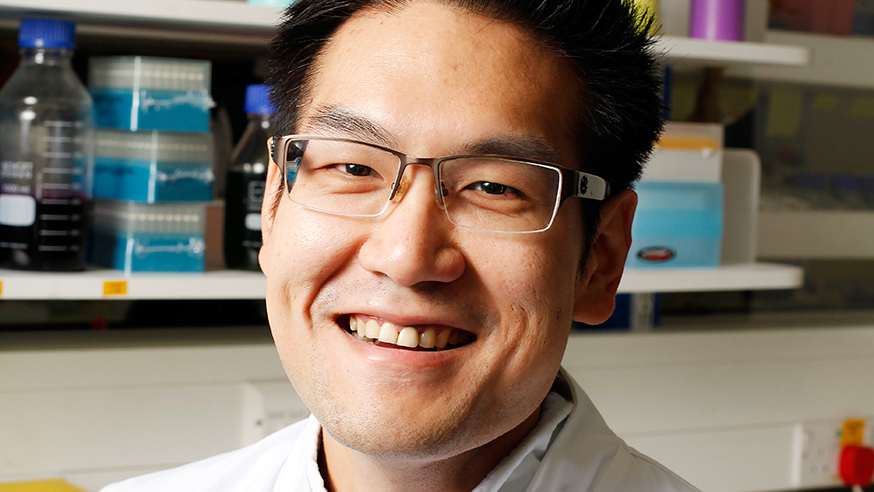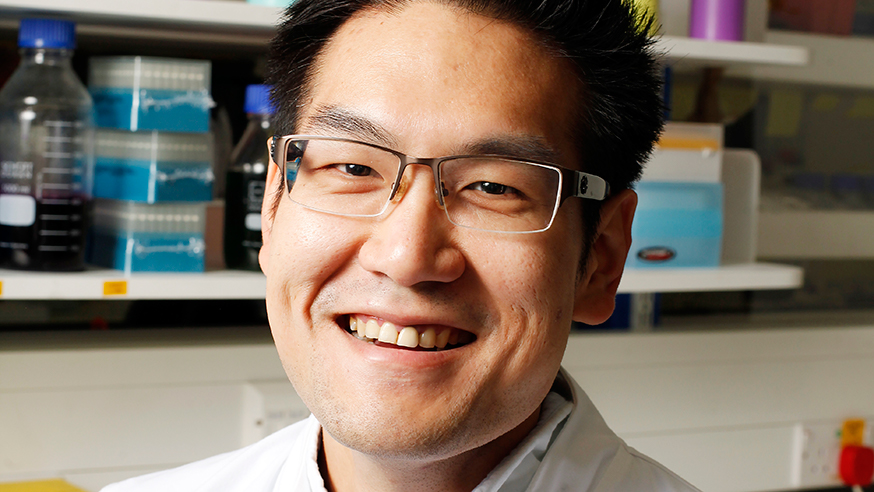
Testing for the activity of two genes could pick out women who are at increased risk of dying from their breast cancers, suggests a new study of almost 2,000 patients.
Women whose tumours had a specific pattern of activity in the two genes were three times as likely to die within 10 years as others with a different pattern of activity.
Scientists at The Institute of Cancer Research, London, spotted the pattern of gene activity among breast cancer cells with a particular ability to escape from the glue that normally holds them in place.
They believe the genes could play a key role in releasing cells from this glue – known as the extracellular matrix – so they can spread round the body.
The research, funded by The Institute of Cancer Research (ICR) and Breast Cancer Now, could be used to develop tests for aggressive breast cancers, or even to identify new targets for cancer treatment.
The study, published in the journal Oncotarget today (Wednesday), looked at breast cancer cells that were positive for the protein HER2 – the target for the drug Herceptin, which is found in around 20 per cent of tumours.
The ICR researchers developed a new image-based screening technique in order to identify cancer cells that didn’t stick to the protein laminin – which helps build scaffolding around cells to glue them together.
They found that these cells tended to have high activity in a gene called F12 and low activity in another called STC2.
When the researchers analysed the same genes among 1,964 breast cancers, they found that this pattern of activity was strongly linked to survival.
Women whose tumours had high F12 activity and low STC2 activity had a 32 per cent chance of dying within 10 years, whereas those with low F12 activity and high STC2 activity had only a 10 per cent chance of dying.
More research is now needed, to establish how these genes could interfere with the extracellular matrix and help cancer cells grow and spread.
Study leader Dr Paul Huang, Leader of the Protein Networks Team at The Institute of Cancer Research, London, said:
“Survival rates for breast cancer are now much higher than they were a few decades ago, but the disease remains deadly once it has spread round the body. Our study sheds light on how cancer cells unstick themselves from healthy tissue, and it could help pick out women at high risk of their cancer spreading and becoming fatal.
“We found that the activity of two genes which may help control how tightly cells are glued together is linked to breast cancer survival. If the results are confirmed in larger studies, it could give us a new way of assessing women’s survival chances in the clinic, and adjusting treatment accordingly.”
Professor Paul Workman, Chief Executive of The Institute of Cancer Research, London, said:
“We have seen major strides in the treatment of breast cancer, but once it begins to spread round the body it is still often fatal. This new study helps us understand some of the processes that control how breast cancers spread, and identifies a pattern of genetic activity that could be used to pick out women particularly at risk.”
###
Notes to editors
For more information contact Henry French on 020 7153 5380 or [email protected]. For enquiries out of hours, please call 07595 963 613.
The Institute of Cancer Research, London, is one of the world’s most influential cancer research institutes.
Scientists and clinicians at The Institute of Cancer Research (ICR) are working every day to make a real impact on cancer patients’ lives. Through its unique partnership with The Royal Marsden NHS Foundation Trust and ‘bench-to-bedside’ approach, the ICR is able to create and deliver results in a way that other institutions cannot. Together the two organisations are rated in the top four cancer centres globally.
The ICR has an outstanding record of achievement dating back more than 100 years. It provided the first convincing evidence that DNA damage is the basic cause of cancer, laying the foundation for the now universally accepted idea that cancer is a genetic disease. Today we are world leaders at isolating cancer-related genes and discovering new targeted drugs for personalised cancer treatment.
As a college of the University of London, the ICR provides postgraduate higher education of international distinction. It has charitable status and relies on support from partner organisations, charities and the general public.
The ICR’s mission is to make the discoveries that defeat cancer. For more information visit http://www.icr.ac.uk
Media Contact
Henry French
[email protected]
44-207-153-5380
@ICR_London
http://www.icr.ac.uk
The post Study links two genes to breast cancer survival appeared first on Scienmag.





